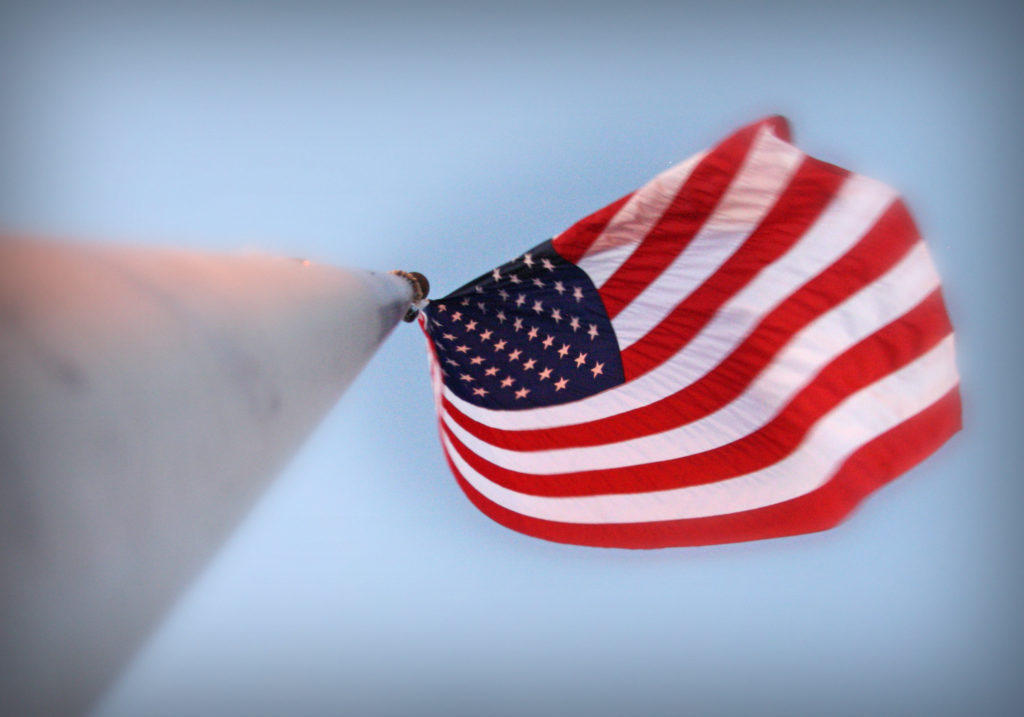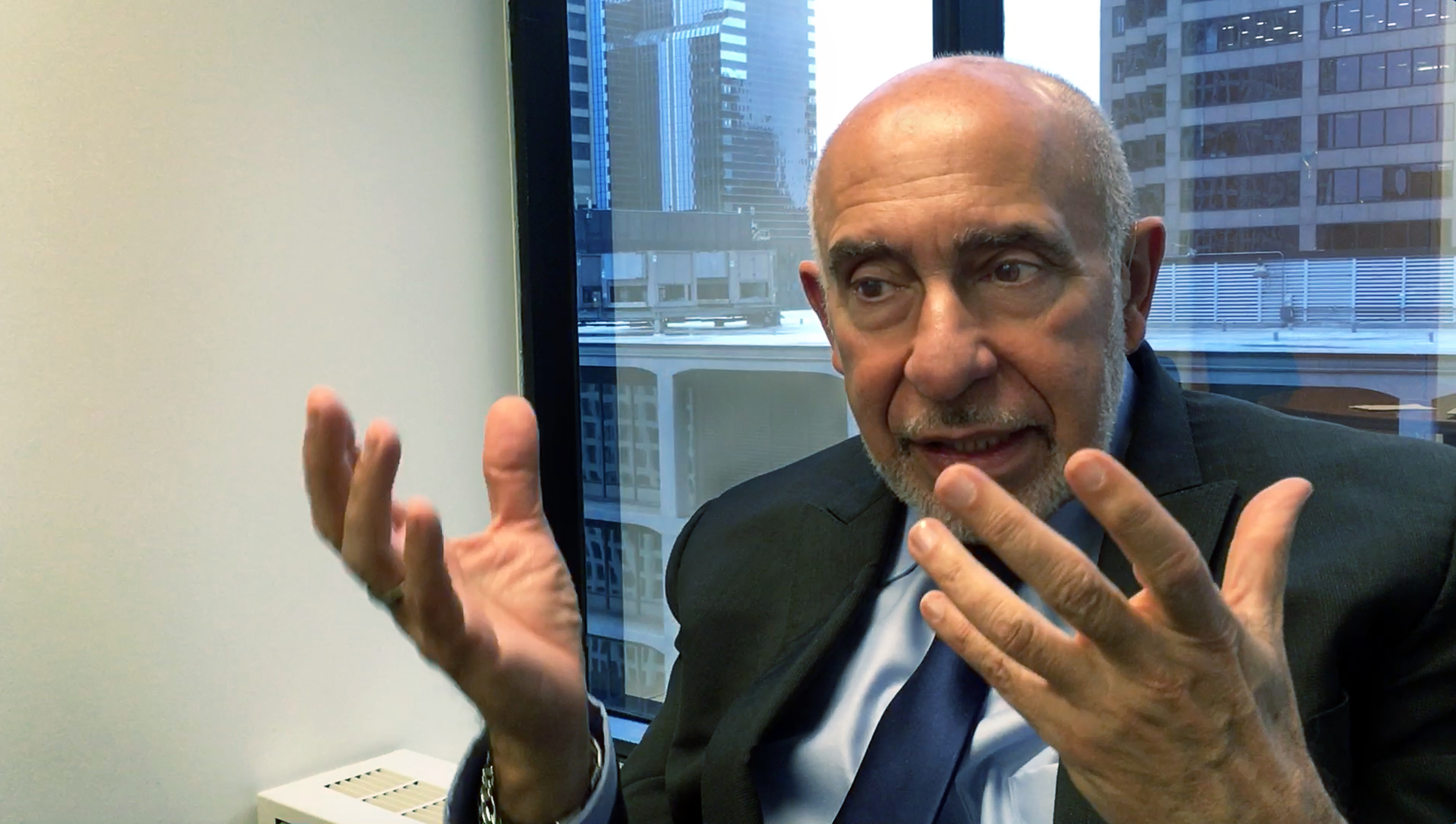Wash U chancellor harms free speech by embracing College Republicans’ 9/11 message while ignoring hateful attacks on student protester
Washington University has condemned student Fadel Alkilani for removing some of the 2,977 American flags that the College Republicans placed on Mudd Field this past weekend to commemorate the victims of the 9-11 attacks. In a statement issued Sunday, Chancellor Andrew Martin declared that Alkilani’s action impeded “the free exchange of ideas.”
The university is correct, in my view, that Alkilani’s action – or more accurately, the form he chose for his own expression – violated free speech norms. However, other features of the university’s response to these events undermine, rather than promote, the values of free speech and open debate at Washington University.

My understanding is that the university gives students general permission to place objects and displays on campus grounds for expressive purposes and that other student groups have placed comparable types of displays. Given that permission, I agree with the university that Alkilani’s removal of the College Republicans’ flags violated free speech principles. The College Republicans acted independently, within university rules, to express their political view. Alkilani and others who shared his views could have countered the College Republicans’ display in any number of ways – by using the flags as a backdrop for a protest, by placing their own display on the field, or by some entirely different form of expression. Instead, Alkilani tried to erase speech he disagreed with.
Counter-speech is not always the panacea for putative bad speech that traditional civil libertarians make it out to be. In this case, however, effective counter-speech was viable. The College Republicans’ flag display reflects no special power or advantage on the group’s part. The American flag as a symbol does have special power, but countering popular ideas is always hard. Simply erasing someone’s expression is, in my view, usually a poor contribution to public debate. I have little doubt that, had Alkilani responded to the flag display with his own autonomous counter-speech, many members of the Washington University community would have shared his political concerns and rallied to his side.
If the university had simply affirmed the importance of free speech and denounced Alkilani’s removal of the College Republicans’ flags, this controversy would be receding from view. Unfortunately, the university went further. My concern about the university’s response rests on an important predicate: The College Republicans’ flag display was a powerful, contestable political statement.
To begin with, the College Republicans are a partisan political organization. The organization exists to engage in partisan political activities. The idea that any public activity the College Republicans engage in lacks political content strains credulity. (To be clear, I take the same view of activities by the College Democrats.)
Here, the College Republicans’ flag display carried a strong political message. A national flag symbolizes national identity and the national interest. For many people, 9-11 was fundamentally about national identity and the national interest. For many others, though, 9-11 was about human loss, or the horror of violence and aggression, or the transnational toll of terrorism and war, or any number of other concerns. The College Republicans’ display advanced the “national interest” view of 9-11 as opposed to other views.
The American flag, in general, is a more contentious political symbol now than it has been during most of our nation’s history. In particular, protesters against racial injustice for several years have refrained from certain observances of the flag, including standing for the National Anthem and reciting the Pledge of Allegiance, to dramatize their cause. Alkilani’s stated purpose of decrying Islamophobia tracks that same political fault line.
The College Republicans’ flag display, in particular, used 2,977 American flags to represent each individual victim of the 9-11 attacks. Many of those victims and their families would likely take comfort and pride in that representation. Many others, however, would likely object to having their personhood reduced, in the service of a political message, to their national identity. Moreover, 372 of the 2,977 victims of 9-11 were not U.S. citizens. Those 372 came from more than 90 other countries. Representing them with American flags is the functional equivalent of marking Jewish or Muslim graves with a cross. That’s an especially contentious political statement.
Perhaps most significantly, the College Republicans’ flag display made a political statement by casting the significance of 9-11 as extending only to the events and deaths of that day. This, according to Alkilani’s public statements, was his major political objection to the display. The 9-11 attacks, beyond their immediate toll, set off a chain of events that included (among other things) increased Islamophobia in the United States and devastating wars in Iraq and Afghanistan. Many people view an isolated focus on 9-11 as eliding political concerns about those subsequent events.
Even if we could somehow read the College Republicans’ flag display as expressing only a message of national unity, that would still be a contestable political message, precisely because other people see different kinds of significance in 9-11. The substantial national unity that followed the 9-11 attacks was a necessary precondition for the U.S. invasions of Iraq and Afghanistan, the USA Patriot Act, and the ongoing imprisonments of accused enemy combatants at Guantanamo Bay. Anyone who objects to any of those actions might well object to memorializing the 9-11 attacks with potent symbols of national unity.
The College Republicans have characterized their flag display as a commemoration of 9-11’s victims that expresses no political view. For the reasons I have explained, that characterization makes no sense. I take no position here on whether the political message of the College Republicans’ flag display was right or wrong. I simply emphasize that the political message was present and substantial.
The university’s statements in the wake of Alkilani’s actions tacitly endorse the College Republicans’ political message, mainly by parroting the College Republicans’ line that the flag display was a politically neutral memorial. “The removal of the flags,” wrote Chancellor Martin on Sunday, “impeded the ability of individuals to commemorate the lives lost on 9/11 and to process the trauma of that day.” Making that statement without acknowledging how the flag display itself might have impeded other individuals’ ability to commemorate their losses and process their trauma constitutes an endorsement of the College Republicans’ contestable political portrayal of 9-11.
By endorsing one side in a political debate, the university deploys its power in a way that discredits the other side. The university has chosen to deploy that sort of power at other times, as in its condemnations of racism and misogyny. The university must own those choices. Discrediting racist and misogynist views is one thing. In this instance, though, does the university really want to discredit the views that 9-11 wasn’t only about the national interest; that the American flag may carry complicated symbolic baggage; that American flags may not properly honor American, let alone foreign, victims of 9-11; and that we can’t properly understand the 9-11 attacks without also thinking about the Islamophobia, wars, and policy controversies that followed those attacks?
To make matters worse, the university at this writing has still failed to acknowledge and condemn Islamophobic attacks on Alkilani that, Student Life reports, have oozed from both inside and outside the university community. That failure is baffling and shameful. Chancellor Martin’s Sunday statement vaguely pledged to “ensure that [Mr. Alkilani] has access to campus resources that are regularly available to students as he navigates the consequences of his actions, both on campus and beyond” (emphasis added). If that statement refers to the Islamophobic attacks on Alkilani, then it’s inexcusable victim blaming.
Washington University, in order to extol free speech and to declare Alkilani’s behavior out of bounds, did not have to say anything at all about the political controversies underlying the College Republicans’ flag display. The university, however, chose to embrace the College Republicans’ political view of 9-11 and then to ignore hateful attacks on a student in its charge. Those choices cause far greater harm than Alkilani’s errant action to the culture of free speech and open debate on our campus.
Greg Magarian is the Thomas and Karole Green Professor of Law at Washington University and a leading national expert on the First Amendment. In 2017 he wrote an essay for GJR supporting the First Amendment rights of non-violent Black Lives Matter protesters in St. Louis.


